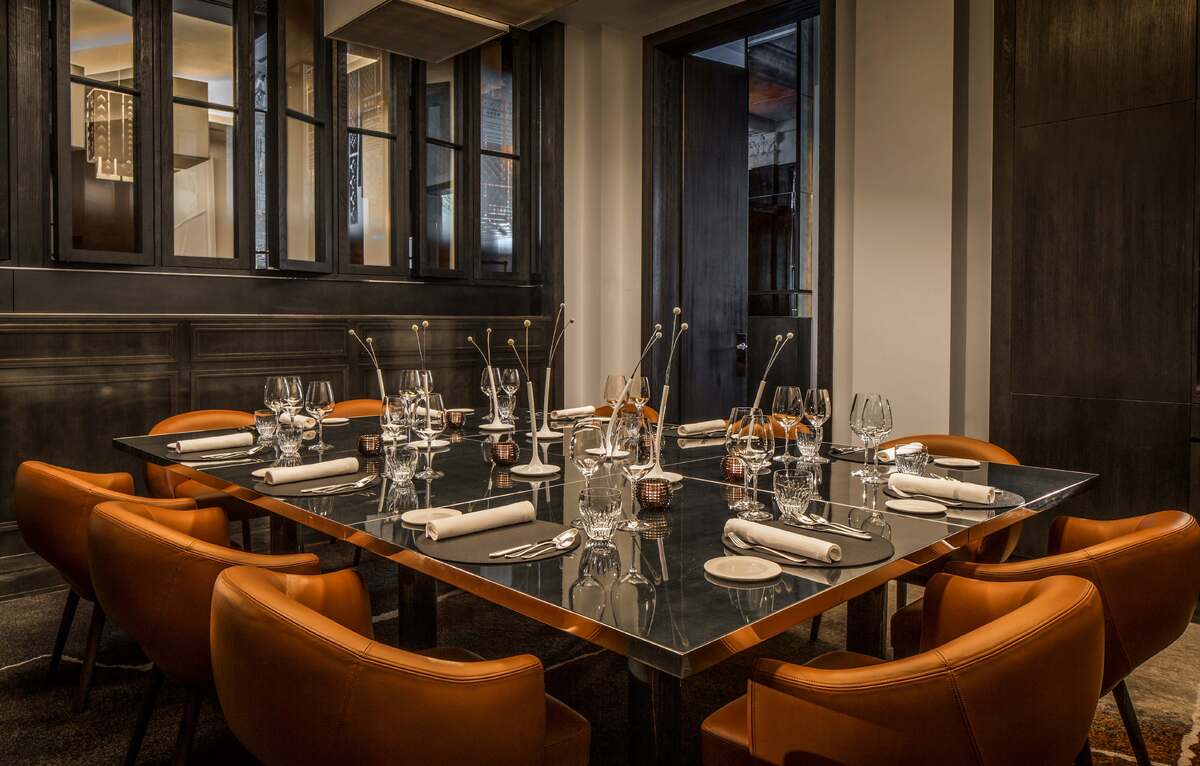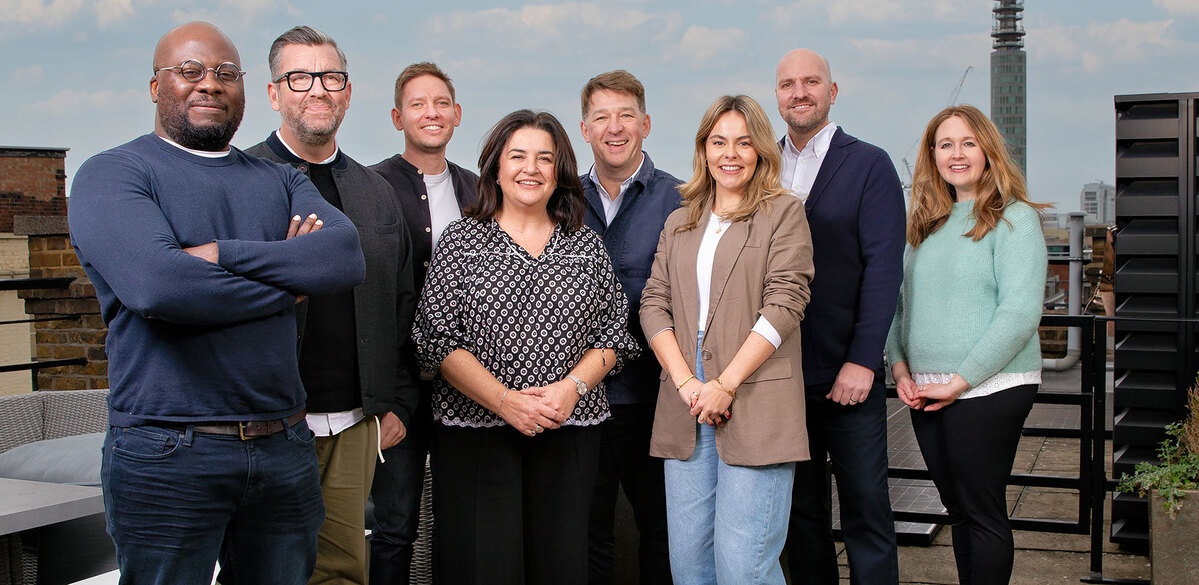How to approach workplace harassment and end bullying in hospitality kitchens
Reality TV shows such as Gordon Ramsay’s Hell’s Kitchen have made the harassment and abuse of employees in hospitality very public knowledge. In the first of a three-part series in partnership with #FairKitchens, we aim to move the issue forward by exploring the urgent need for a culture change from the top down – and by showing what best practice looks like. Rosalind Mullen reports.
There has been a spate of news stories over recent months about the abuse suffered by employees in hospitality workplaces – and we are talking high-profile, reputable businesses here, which has made it the more shocking. Not least, it further scars an industry that already suffers from a poor image among jobseekers at a time – thanks to Covid and Brexit – when recruitment and retention are particularly challenging.
Worse still, it is not confined to just a few news stories. Comments from employees all around the UK using the #hospitalitybullshit tag on Instagram and other blogs make for uncomfortable reading. Issues front and back of house range from physical and sexual abuse to racist comments, misuse of tronc systems, being expected to work unfeasibly long hours, being humiliated, shouted at – the list goes on. Even when managers aren’t the perpetrators, many have neither the tools nor the will to provide support when they witness harassment from guests or among co-workers, and may dismiss bad behaviour as ‘banter’.
Often, this is down to a lack of training, empowerment and understanding. And that has to change, according to those in the industry who are advocating for a culture shift.
From a business point of view, change is imperative, says Mark Lewis, chief executive of Hospitality Action. “Hospitality suffers from an enduring image problem. With Brexit and the pandemic leaving the sector facing a yawning staff shortage, it’s more important than ever that parents and other career influencers feel reassured that they are directing young jobseekers into safe, respectful workplaces.”
Brian McElderry, executive director of national chefs union Unichef, says unrealistic workloads add pressure and that competent managers are required to manage this properly. “The simple answer is education, education, education,” he says. “Our industry has suffered many years of systemic abuse to the point of normality. We must start with our young students, and teach them that our workplace is protected by law. People cannot and must not be abusive in the workplace. The expectations of employers must be met realistically and in keeping with legislation that protects their workforce.”
Employers certainly have legal obligations, as Michelle Landy, employment solicitor at law firm Slater and Gordon, explains: “The starting point is that an employer has a duty of care to its employees, which means they should take all reasonable steps to ensure that employees are not subjected to harassment. Employers can be found vicariously liable for actions of their employees, so anyone who finds themselves a victim of harassment may bring a claim against their employer.”
Make a change
Of course, many enlightened operators are already creating healthy workplaces where tensions and bad behaviour are recognised and handled accordingly (see case study panels). Indeed, 400 hoteliers have already signed up to the Hoteliers’ Charter, and the number is expected to reach 1,000 by the end of the year. Founded in February by Sally Beck, general manager at Royal Lancaster London, the charter’s 10 pledges include providing a positive workplace environment and culture. One of its aims is to help hoteliers put processes in place to ensure any abuse is immediately flagged; another is to present hospitality as a career rather than a job.
Within her own 411-bedroom hotel, Beck has set up an internal communications committee of junior employees to train staff in respectful behaviour in the workplace. “They meet with me once a month, and I train them in what to look for,” she says, “because unless they understand employment law in terms of sexism, ageism and so on, they can’t see it in the workplace. If they can see it, they can then do something about it. In our inductions we’re straightforward about how one behaves here.”
In fact, Beck, who promotes zero tolerance of bullying (see next week’s article), sets out to hire the right people in the first place. “We hire on behaviour, and I see everybody before they’re offered a job. I’m not looking at their skill sets; I’m looking at whether they should be in hospitality. Should they be in my hotel? Do they like people, and are they kind? You can then teach the rest. And if they have that core behaviour and kindness, they will make great managers.”
Asma Khan, chef-owner of Darjeeling Express in London’s Covent Garden, regularly speaks out about the importance of creating a respectful workplace. She agrees that proper induction processes and guidelines are crucial so that staff are not left having to learn from their mistakes. “This helps to enhance the respect between team members and also between management and the rest of the staff,” she says.
Like Beck, Khan has a zero tolerance of abuse, which is expressed clearly to new recruits. “On the rare occasion where there have been issues, we have given an opportunity for that person to explain what happened, and if change or remorse is not seen we will not keep that person on.”
One of the most important strategies is to recruit good managers. Khan observes that many areas of the industry still seem to be “steeped with unhealthy masculinity”, and that bullying is seen as part and parcel of working in a restaurant. She urges managers to change the way they see their role.
“The image of the industry has suffered over the pandemic, starting with prominent chefs and restaurants sacking their staff rather than furloughing them,” she tells The Caterer. “Also, the lack of leadership shown by restaurateurs and chefs towards their team who suddenly found themselves out of work. We have to claw back from that image of the uncaring selfish management of hospitality and put in place policies that will support the mental health of the entire team.”
So besides tackling issues of harassment within your organisation, what can employers do to reassure jobseekers who may be put off by the industry’s image? Lewis at Hospitality Action suggests: “Promote a sense that you, as an employer, value your employees, by offering benefits such as an employee assistance programme (EAP) to ensure team wellbeing, induction and mentoring schemes for new employees, and opportunities for personal development through training and other means.”
‘Let’s apply the same creativity we bring to our food’
While abuse is found in all hospitality departments, the kitchen is often seen as a particular flashpoint. Unilever Food Solutions is one of the co-founders of FairKitchens, a global movement (www.fairkitchens.com and #FairKitchens) that has started a conversation around unhealthy working conditions back of house, identifying the underlying issues and focusing on finding solutions.
Alex Hall is a FairKitchens ambassador, contributor to the ‘Leading a FairKitchen’ training series, and executive chef of Unilever Food Solutions UK and Ireland. What follows is his personal account of harassment in the sector.
He says: “The hospitality sector is notoriously pressurised and stressful, which can lead to bad practice from those at the top. The concern is that this becomes the norm and that we are teaching people that this is the only way to lead and become successful.
“Through the #FairKitchens network we’ve learned of some of the shocking ways in which people have been treated in the industry, which only highlights the importance of doing more than just teaching people how to cook – we also need to teach them how to lead.
“It’s easy to fall into bad leadership habits. We’ve all done it, including myself. Luckily for me, I had a colleague who pulled me aside and pointed out how my behaviour was impacting others around me. While at the time I was mortified, I was lucky enough to be able to recognise this, which inspired me to change for the better.
“The thought that we must act a certain way to be successful has well and truly been challenged, and we all have to start reflecting on the past to really carve out a future for this industry, applying the same creativity we bring to our food to the working conditions we offer to our teams.”

Best practice case study: George Blogg, Gravetye Manor, Sussex

We asked George Blogg, executive chef at Gravetye Manor, West Hoathly, Sussex, about how to build a healthy workplace – and his own experience of harassment.
What is your strategy for creating a respectful kitchen – especially in a Michelin-starred restaurant with such a high-achieving brigade?
With the current staffing issues, we can’t afford to be picky. Mutual respect between team members of different genders, age, backgrounds, education and cultures is a must for retention.
A varied team is more challenging to manage, as you have to be fair but also aware that people think differently to each other, and talk to them in a way so that they will understand this and progress. ‘Pressure’ is just an excuse; it is not an acceptable reason to ignore empathy, manners and respect.
How do you recruit and train good deputies that you can trust to maintain the reputation of the kitchen at Gravetye Manor?
Compassion, honesty and professionalism are more important than experience and skill level when looking at promoting or employing staff. Rewarding these qualities helps the team re-evaluate how they should behave and has a positive influence on your kitchen culture.
Your deputies should be the ones setting the highest example of this, but ultimately it is the manager’s responsibility to make sure that they are doing so.
Did you personally experience maltreatment when training?
Yes. Rather than glorifying maltreatment, we should be disappointed in the way some people act in our industry. Moving forward, people who suffer should have guidance and support to speak out through the appropriate channels, and the people responsible should be held accountable for their actions.
Best practice case study: Anna Haugh, Myrtle restaurant, London

Anna Haugh, head chef and owner of Myrtle restaurant in London’s Chelsea, explains how she has established a kitchen where everyone is treated fairly.
How do you create a respectful workplace culture in a high-pressure environment – and why is it important in the current staffing crisis?
First off, I think the environment should be respectful irrespective of the staffing crisis.
If everyone talks of the stress in kitchens being out of control, then people act out of control.
The kitchen environment is full of systems and formulas that, if followed, make them just a high-paced, well-oiled machine.
I have a kitchen brigade of six, and there are seven on the floor of the 32-seat restaurant. Teaching them to be positive when service changes direction helps.
I don’t like people complaining, especially when that can’t fix a problem. Debriefing and talking after service about what would help to make things move smoother is useful. Slamming the fridge door and shouting ‘fuck’s sake’ is pointless except to feed the ‘beast’ – the ego adrenaline monster that is encouraged in chefs.
Do you have formal rules and consequences at Myrtle?
We all treat each other as a person should be. We greet each other in the mornings, make each other a coffee, enquire after partners and how our days off were. When someone is possibly making a mistake, the team works together to help. There isn’t a culture of telling tales or highlighting other people’s weaknesses.
The team know I keep a close eye, and my main goal is to encourage everyone to fulfil their potential, front and back of house.
How do you recruit and train good deputies that you can trust to maintain the reputation of your kitchen?
The qualities I look for are honesty, ambition, kindness and someone who has an interest in life. I’m not looking for drones who live-eat-sleep my kitchen. I like it when they switch into work mode as they walk through the door, but when they are home I absolutely do not want them in work mode. I want them to enjoy themselves, be open to experiences, love and live. They end up far better, well-balanced chefs.
Have you had bad personal experiences of harassment working for others?
Of course. I’ve worked in Ireland, England, France, Spain and America and been cooking for over 20 years. When I trained, abuse was expected. I worked in incredibly abusive environments, but thanks to my great family and friends it has not impacted me.
I’ve been called every name, burned, pushed, excluded, goaded and mocked. What stays with me was seeing how it affected others – seeing a chef or waiter being slowly or quickly broken, the drinking and drug dependency, the nice guy turned bad, the tears and outbursts. This doesn’t leave me because I could feel their pain and the injustice of so much of it.
I watched senior chefs’ reactions and asked myself if that was good or bad, and eventually developed an idea that most of it wasn’t necessary.
Should star rating systems dock points for staff abuse?
Would it help improve workplace culture if guides such as Michelin and the AA included staff treatment during assessments?
“Yes, after pressure from the national chefs union, Michelin issued a statement in which they condemned abusive behaviour in the workplace. They stopped short of believing they could intervene while awarding such accolades but have left the door open for us to discuss further the possibility of rescinding awards where abuse is proven.” - Brian McElderry, Unichef
“Yes, it would. We follow the 10 charter commitments for the Hoteliers’ Charter, which is about treating people well, and in there the AA will ask general managers who are signed up to the charter if they are upholding their commitments. They will also ask staff if their general managers are upholding the charter commitments, which is important.”- Sally Beck, Royal Lancaster London
“Absolutely, and it can easily be done. If there is a will there is a way.”- Asma Khan, Darjeeling Express
“I think the AA and Michelin have a complicated enough job. I believe we can celebrate happy staff. This is [a better way] to create a mindset than trying to catch people out.
“We should stop celebrating chefs who lose their temper or have been known to. I think it’s disgraceful that abusive chefs are excused because the environment is high-paced and pressured. We are just making people’s dinner.”- Anna Haugh, Myrtle restaurant
“There could be a special award for this, but to judge and rate every restaurant may be difficult.”- George Blogg, Gravetye Manor
##What the law requires
Michelle Landy, employment solicitor at law firm Slater and Gordon, explains how legislation protects your employees.
What are an employee’s legal rights in situations of harassment?
Harassment does not have to be physical or sexual to be classified as harassment. Under the Equality Act 2010, anything done by an employee in the course of their employment is treated as also being done by the employer, which means that an employer can be liable for harassment carried out without their knowledge.
Under health and safety legislation, employers must provide a safe working environment for employees without risk to their health, safety or welfare. This means being able to work without the fear of threatening behaviour or abuse.
To prevent issues arising in the workplace, employers should be clear on the appropriate standards of behaviour and should have an anti-bullying and anti-harassment policy in place.
What constitutes harassment in employment law?
Harassment is where there is unwanted conduct related to a relevant protected characteristic – age, disability, gender reassignment, marriage and civil partnership, race, religion or belief, sex, and/or sexual orientation – which has the purpose or effect of either violating that person’s dignity or creating an intimidating, hostile, degrading, humiliating or offensive environment for them.
Harassment can take many forms. Heavy-handed management or shouting, for example, may amount to harassment. Sexual harassment does not have to be physical. It can be, for example, saying unwanted things of a sexual nature. It also occurs if someone rejects conduct of a sexual nature and is treated less favourably as a result.
What penalties might an employer face if a claim of harassment is successful in an employment tribunal?
Compensation for injury to feelings ranges from £900 for less serious cases up to £45,600 for the most serious cases. In addition, the employee may be able to claim compensation for financial loss if, for example, they had to take time off work and lost wages or resigned as a result of harassment. Depending on the facts, they may be able to pursue a claim for personal injury.
They may also be able to pursue a criminal complaint, under the Protection from Harassment Act 1997, which can result in a fine or prison sentence.
Next week’s feature will address resolving conflict
Featured photo: sulit.photos/Shutterstock




















